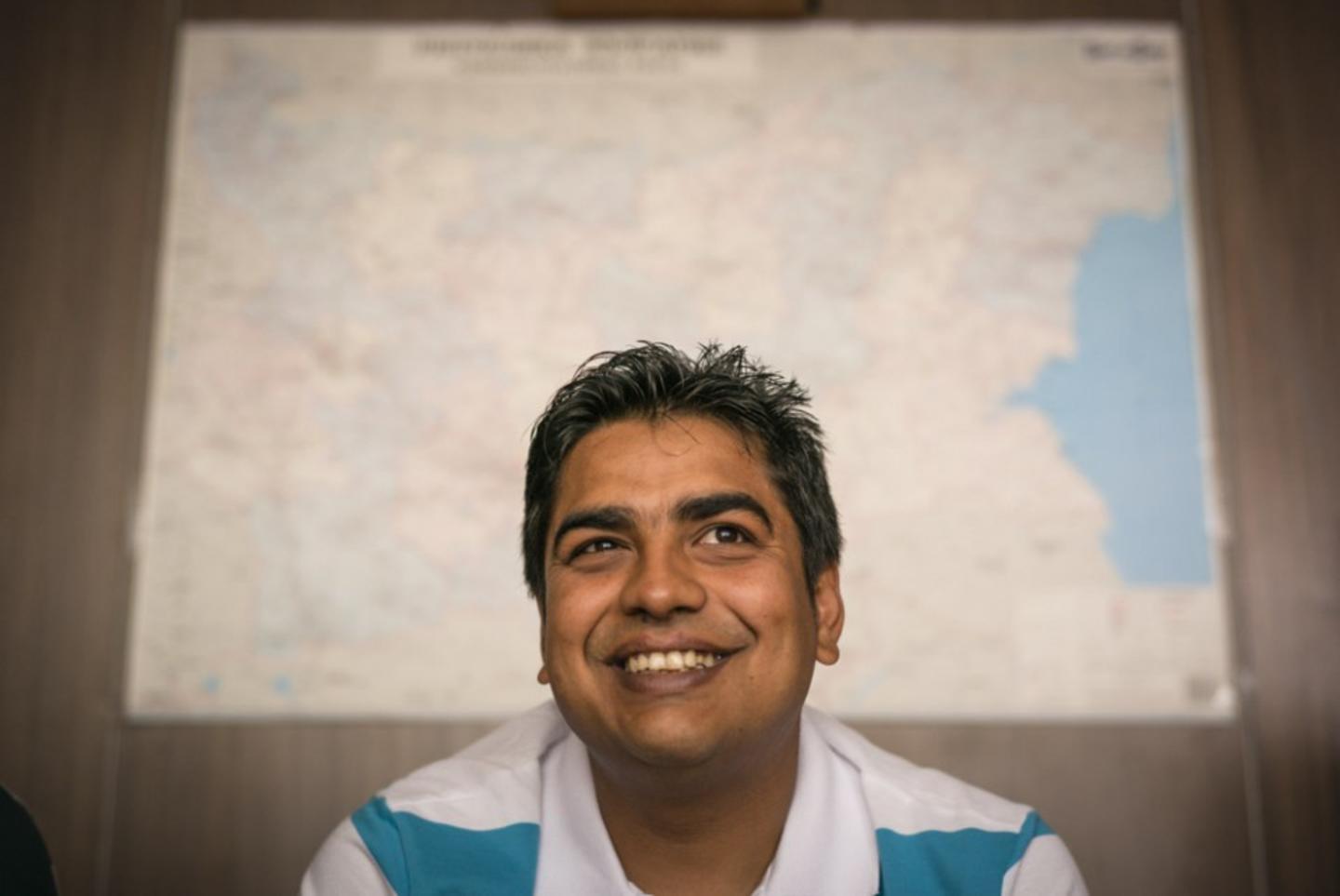“For us as Roma it can be difficult to meet people from outside our own community. So I hope that the youth centre can be a place where young people from Plovdiv can meet regardless of ethnic background,” says Svetoslav Aleksiev.
He is one of many young people that will benefit from four youth centres that are currently being established in Bulgaria with funding from Iceland, Liechtenstein and Norway. The centres will be open to young people between the ages of 15 and 29 and be a meeting place as well as a place where young people have an opportunity to learn new skills and get help entering the labour market. Roma youth are a key target group.
An important contribution
EU studies show that Roma access to pre-school is often limited. This contributes to high drop-out rates and very low enrolment in secondary and university education. Through the support from the Grants, at least 1 100 additional children from underprivileged and Roma families in Bulgaria will get a place in a pre-school.
“The programme is an important contribution to inclusive education and society in Bulgaria with its focus on early childhood education, youth participation and Roma inclusion," said professor Nikolay Denkov, Deputy Minister and Head of the EEA and Norway Grants' Children and Youth at Risk programme in the Ministry of Science and Education in Bulgaria. He was today participating at a cooperation committee meeting and celebration of the International Roma Day at the Council of Europe in Strasbourg.
The Council of Europe is involved as a strategic partner in the Children and Youth at Risk programme in Bulgaria providing advice and expertise on inclusive education, youth participation, intercultural dialogue and capacity building.
“Through this innovative work with 3-6 years old children from underprivileged, including Roma, families in Bulgaria, the Council of Europe and its partners are achieving tangible results in building a more inclusive society. Our hope is to scale up and replicate this promising and successful programme,” said Jean-Christophe Bas, Director of Democratic Citizenship and Participation at the Council of Europe.
Find out more about the projects under the children and youth at risk programme in Bulgaria
Read more about the children and youth at risk programme in Bulgaria.
Supporting Roma doctors and nurses in Bulgaria
Improved information on and access to healthcare and education is key to breaking the cycle of marginalisation and poverty. As an example of the support through the EEA and Norway Grants, health scholarships are made available for Roma students in Bulgaria who have already started their education in medicine and other health care professions. Recently 42 Roma students were selected to receive financial support, mentoring and advocacy training. In the long term, the scholarship programme is expected to contribute to improving the medical services provided to the Roma communities.
Improving Roma school performance in Hungary
“We aim to provide an opportunity for the children to spend their leisure time participating in purposeful and engaging activities,” says Zita Jámbor, project promoter of the ‘BAGázs School Community Service’ project.
Supported by the NGO programme in Hungary, this project aims at strengthening the school performance of Roma children and decrease discrimination by implementing an after-school programme in the Roma settlement in Bag in Hungary, where children could develop their skill sets through constructive extracurricular activities.
Combating discrimination in Romania
The Roma frequently face intolerance, discrimination and exclusion. In Romania, Iceland, Liechtenstein and Norway support a programme that focuses on Children and Youth at Risk, including Roma. Besides improving access to education, there is a need to strengthen the existing legislative framework to better protect the rights of this group. Therefore a specific project will contribute to the development of a national strategy to prevent and combat discrimination for the period 2014-2021.
Challenges facing the Roma
The Roma are Europe’s largest minority with an estimated population of 10-12 million. The Roma are also one of Europe’s most vulnerable and disadvantaged groups, both socially and economically. According to a 2012 report by the EU Agency for Fundamental Rights (FRA), one in three Roma is unemployed, 90%t live below the poverty line and one in two has experienced discrimination because of their ethnic background.
A priority
Against this backdrop, Iceland, Liechtenstein and Norway have made improving the situation of the Roma a priority. There is a particular focus on countries with sizeable Roma minorities, such as Bulgaria, the Czech Republic, Hungary, Romania and Slovakia.
In total, close to 50 programmes that are relevant for Roma inclusion are being implemented in 12 of the Grants’ beneficiary countries. In many of these, the Council of Europe is involved as a partner. The Grants also cooperate closely with the EU, including the European Commission and its Agency for Fundamental Rights (FRA) as well as with the Open Society Foundations and other international organisations.
Human rights, social and economic inclusion
The funding aims both at protecting and promoting the human rights of the Roma as well as enhancing their social and economic inclusion. By targeting Roma both specifically and as part of a wider effort that includes other disadvantaged groups, Iceland, Liechtenstein and Norway help address prioritised needs in the beneficiary countries. The support is broad in scope, encompassing several different areas, such as civil society, children and youth at risk, education, justice and home affairs and cultural diversity.
Find out more
Our factsheet on support to Roma inclusion in the EEA and Norway Grants
Read more on http://www.eeagrants.org/roma
